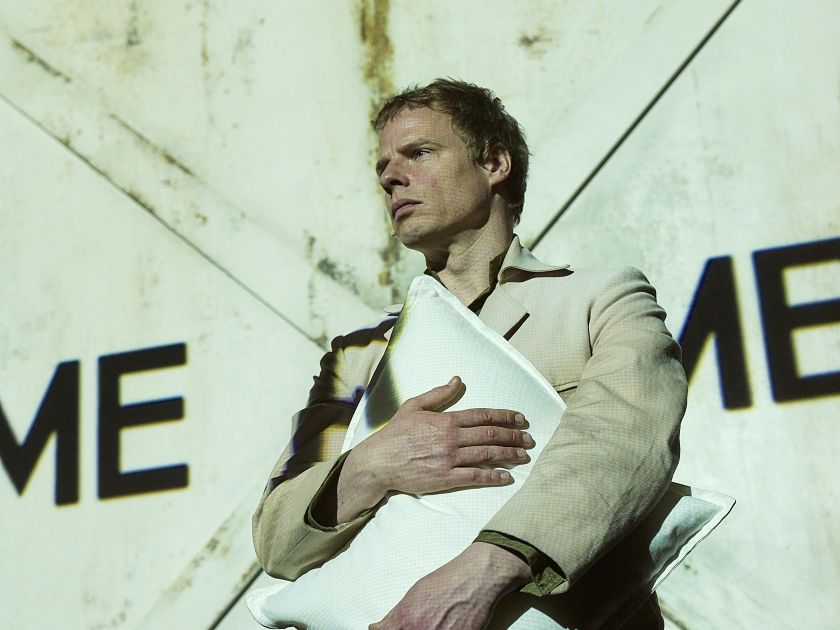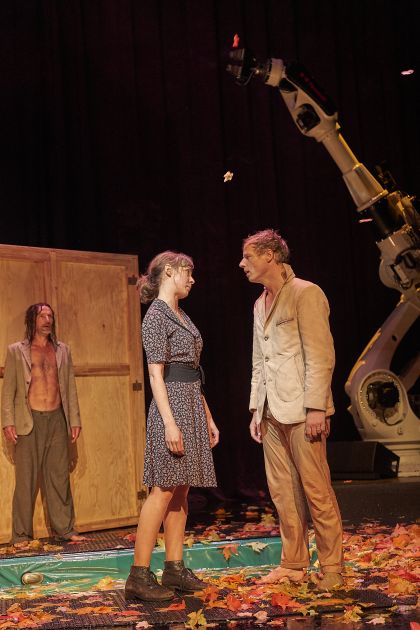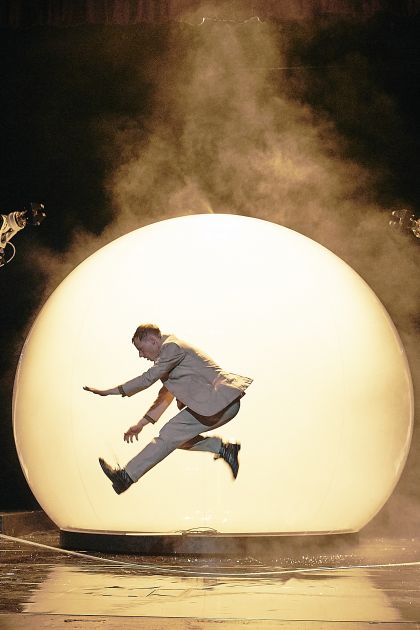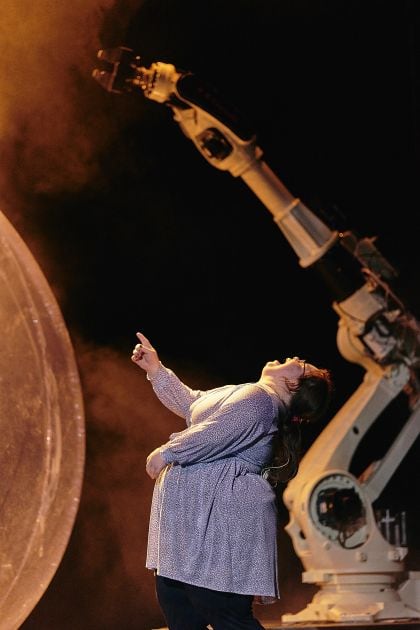Koproduktion mit dem Thalia Theater, Hamburg
Mit Texten von Kata Wéber in der Übersetzung von Orsolya Kalász und Peter Holland
„Angst hab’ ich keine vor der Polizei dort oben, wenn man mich nur vorlassen wird bis zum Herrgott …“
FAQ
Wie komme ich zur Perner-Insel nach Hallein?
- Gratis Bus-Shuttle Ein Gratis Bus-Shuttle steht von Salzburg nach Hallein auf die Perner-Insel und retour zur Verfügung. Der Bus fährt eine Stunde vor Vorstellungsbeginn Anfang Reichenhaller Straße (auf Höhe Haus Nr. 4) ab. Kostenlose Bustickets sind im Bus erhältlich.
- Festspielkarte = Busticket Bequem und stressfrei zu den Salzburger Festspielen – Ihre Festspielkarte gilt von 19. Juli bis 31. August 2024 als Fahrschein auf sämtlichen Bus- und Bahnlinien des SVV im Bundesland Salzburg (Verbundraum), jeweils sechs Stunden vor Veranstaltungsbeginn bis Betriebsende. Detaillierte Informationen finden Sie im Fahrplan.
- Parkmöglichkeiten Parkplatz Perner Insel Mauttorpromenade 12, 5400 Hallein
Wann öffnet die Vorstellungskasse auf der Perner-Insel?
Die Vorstellungskasse öffnet eine Stunde vor Vorstellungsbeginn.
Gibt es Gastronomieangebote auf der Perner-Insel?
Im Innenhof, wie auch um die Perner-Insel, werden Sie vor der Vorstellung sowie in der Pause von lokalen Gastronomen kulinarisch verwöhnt.
Mehr Informationen zur Perner-Insel finden Sie hier.
Produktionsfotos
Videos
Podcasts
13. August 2019
TerrassenTalk Liliom
In Zeiten von #MeToo-Debatten sei es besonders komplex, aber auch wichtig, ein Stück wie Liliom zu zeigen, davon sind Bettina Hering und Kornél Mundruczó überzeugt: „Liliom ist eine sehr provokante Figur, es ist ein extrem schwieriges, sehr bekanntes, radikales und provokantes Stück."

-
TerrassenTalk LiliomIn Zeiten von #MeToo-Debatten sei es besonders komplex, aber auch wichtig, ein Stück wie Liliom zu zeigen, davon sind Bettina Hering und Kornél Mundruczó überzeugt: „Liliom ist eine sehr provokante Figur, es ist ein extrem schwieriges, sehr bekanntes, radikales und provokantes Stück."13. August 2019.
Programm Navigator
Teilen






